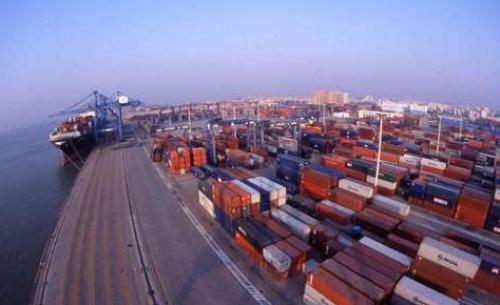
The problem of road fines and repetitive fines that have been criticized for many years, although it has been remedied for many years, remains difficult to eradicate. The "2013 Annual Report on Relieving the Burden of Logistics Enterprises" issued by the China Federation of Logistics and Purchasing (hereinafter referred to as "the China International Federation") shows that road transport fines account for 5%-8% of transportation costs, and 22.4% of enterprises report There is a phenomenon of "only punishment is not corrected," and the problem of long-term management by law enforcement agencies has led to the phenomenon of "double fines." The China National Federation of Things proposes to integrate highway law enforcement entities, implement the “mutual recognition†mechanism for highway law enforcement, and decouple the collection of fees and fines from the management departments, cutting off the interest chain of local, departmental and highway management.
According to the data released by China International Federation of Materials, 27.1% of surveyed companies report that there are many roads and standards for highway law enforcement. Companies generally reflect that the highway law enforcement departments mainly include traffic police, highway administration, transportation management, urban management and other departments. In addition, there are highways, environmental protection, industry and commerce, health, animal quarantine and other departments and units. There are too many law enforcement agencies and companies are at a loss. The same penalty for the same illegal facts is not uniform. For example, "overloading" acts, traffic police fines reason is "overloaded", in accordance with summary procedures, a maximum fine of 200 yuan; highways fine grounds is "excessive", the maximum fine of 30,000 yuan; urban management called "overweight driving kilometers", the maximum fine of 20,000 yuan The transport control is called "overtaking the permit" and the maximum fine is 10,000 yuan. A fifteen-fifty difference between factual fines, and the results of law enforcement in different departments can not be mutual recognition, there is a widespread "double fine" phenomenon.
Lao Song is an old driver who has been shipping for more than a decade. In his eyes, the excessive authority of law enforcement agencies has caused many problems. "More and more law enforcement agencies nowadays, trucks may be checked by different departments and may be punished by the same department several times. Whether it is overloaded or not, how much money is punishable by law enforcement departments, sometimes In order to reduce the amount of fines, they can only be 'private' with them in a way that is not billed, and these money must fall into their personal pockets. The most troublesome aspect is that when accidents and disputes are encountered, the responsibility for accidents depends on all traffic policemen. 'Investigating' has created a great deal of rent-seeking space."
For this situation, China and Wulian proposes to integrate highway law enforcement subjects and implement the "mutual recognition" mechanism for highway law enforcement. It is clear that it is not allowed to "repeat fines" and avoid "multi-headed law enforcement" against unification of the facts. Clear up the law enforcement standards of various localities, set up unified national law enforcement regulations, reduce the discretionary power, and strengthen the highway penalty system. In addition, to fundamentally solve the problem of highway “penalty finesâ€, it is necessary to improve the financial support mechanisms for highway law enforcement agencies, and the revenue and fines revenues are decoupled from the management departments, cutting off the interest chain of local, departmental and highway management.
According to Hong Tao, a logistics industry expert and director of the Institute of Business Economics at Beijing Technology and Business University, many management departments now use fines as a way to make money. They all stare at this "fat", which greatly drives up logistics costs. It is recommended that a unified agency should be set up to centralize the authorities' fines for traffic and to improve the inspection methods. Checkpoints should be placed as far as possible on the customs node, and the “overload†behavior should be reduced from the root.